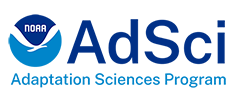Stakeholder engagement in management strategy evaluation of New England groundfish in a changing ocean






Advancing scientific understanding of climate, improving society’s ability to plan and respond






Advancing scientific understanding of climate, improving society’s ability to plan and respond

